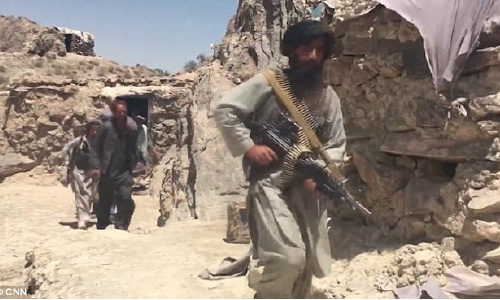Solution to Saving the Republic: Republicans’ Consensus:
Although one cannot underestimate the concerns mentioned in part 2 of this commentary, there are ways to stand against the storm of Emirate System and ISI. The Taliban’s biggest demand is the establishment or restoration of Emirate and it seems necessary for them to unfold this demand in the beginning. But they may gradually reduce their demands and agree with “Islamic government” instead of “Islamic republic” and non-fundamental amendment to the provisions of the constitution. The Taliban should not be expected to have given all their demands away, officially recognized the Afghan government, unfolded their minimum demands, and have confessed their mistakes within the last two decades on the day of signing the peace deal. The achievement gained in the US-Taliban peace talks carries significance for Donald Trump’s team in the US presidential election and the agreement emerged between Washington and the Taliban will be viewed as a success. After the US upcoming presidential election was over, the US troops will return to the battlefield if the Taliban’s next steps were contrary to Washington’s, mainly to that of Pentagon and CIA, which was mentioned by the US actors three months ago. I emphasize that the dangers and evil intention of the ISI should not be undervalued. It depends on the republic supporting side – which is involved in civil arguments, rivalry over their personal and factional interests and issue of election – that how the government and the republic sides in Afghanistan could manage the Taliban’s demands. National consensus, unity of the republic sides, and the government-centered management in the current process will be the only possible solution to the storm of emirate and ISI or else one should await the repetition of the spoiling pot in Kabul by ISI.
(1) Need for Government’s Leadership
Achieving peace is unlikely without a leadership for talks and only the government, not any other group or organization, is able to lead the talks. That is, without the government’s leadership, further anarchism, complication, and diversion will emerge, hampering the path to peace. After the Bonn Conference, ensued by the collapse of the Taliban regime, all political factions, except for the Taliban, had been involved in shaping the current political system and active participation in state-building process (Loya Jirga for temporary government, the process of constitution’s arraignment and approval and holding Loya Jirga for its approval, and the institutions formed on the basis of the constitution including the legislative, executive, and judiciary systems) and the current system is the outcome of their acts and views.
Now the group to be talked to and claims the establishment of “Islamic Emirate” is against the system originated from the public votes and views and organized by representatives of the society’s proportional segments. Are we able to negotiate with the Taliban without the common leadership? Do you not think that disregarding the government’s leadership and the political system stemmed from the current constitution will be tantamount to undermining and eliminating the pillars of this system and strengthening the Taliban’s stance as well as being trapped to the Islamic Emirate?
In peace talks, the people of Afghanistan, political factions, and civil society have to side with the government’s stance and posture, which back the last two decade of the public demands, if they really intend to support the past achievements and their own decisions. This leadership is necessary for safeguarding the past achievements (the constitution, republic system, citizens’ rights, women’s rights, freedom of expression, and freedom of religion and sect). In case if the government follows a path contrary to national values and interests, people and political figures have the rights to stand against it and change the direction.
So far, however, the Afghan government has reiterated its support to safeguard the past achievements and stood firmly in their defense. With all its flaws, the current government has stemmed from the process ushered in by people and political factions since 2001. In peace talks, the government has supported the constitutional principles and public demands and ideas stated by national representatives in Loya Jirga held for approving the constitution. No more or less demand by the government. Having clear agenda, the government has so far proposed a transparent and gradual peace plan to be Afghan-owned and led. On several occasions, Kabul made it clear that the differences between Afghan citizens’ and the Taliban are not selective but fundamental. As the public representative in peace talks, the Kabul government also reiterated its support to the transparent and publicly accepted principles, included in Afghanistan’s Constitution, and pointed out that fundamental differences would be resolved and the ground would be paved for discussing non-fundamental issues whenever terrorist networks and anti-government armed groups reconcile themselves with those principles.
The government’s demands have been within the frame of the constitution and existing values aimed at ensuring security and sustainable peace coupled with foiling conspiracies, plotted to abolish the public government and establish Islamic Emirate. We have to choose one of the two options. If we favor the republic system, democratic principles, and our constitution, we have to stand against the Taliban and Pakistan’s strategy and their gradual conspiracy, plotted for the establishment of Islamic Emirate.
To be continued…
Home » Opinion » Will the Republic be Saved or Tension Repeats in Kabul? (Part 3)
Will the Republic be Saved or Tension Repeats in Kabul? (Part 3)
| Mohammad Shafaq Khawati

